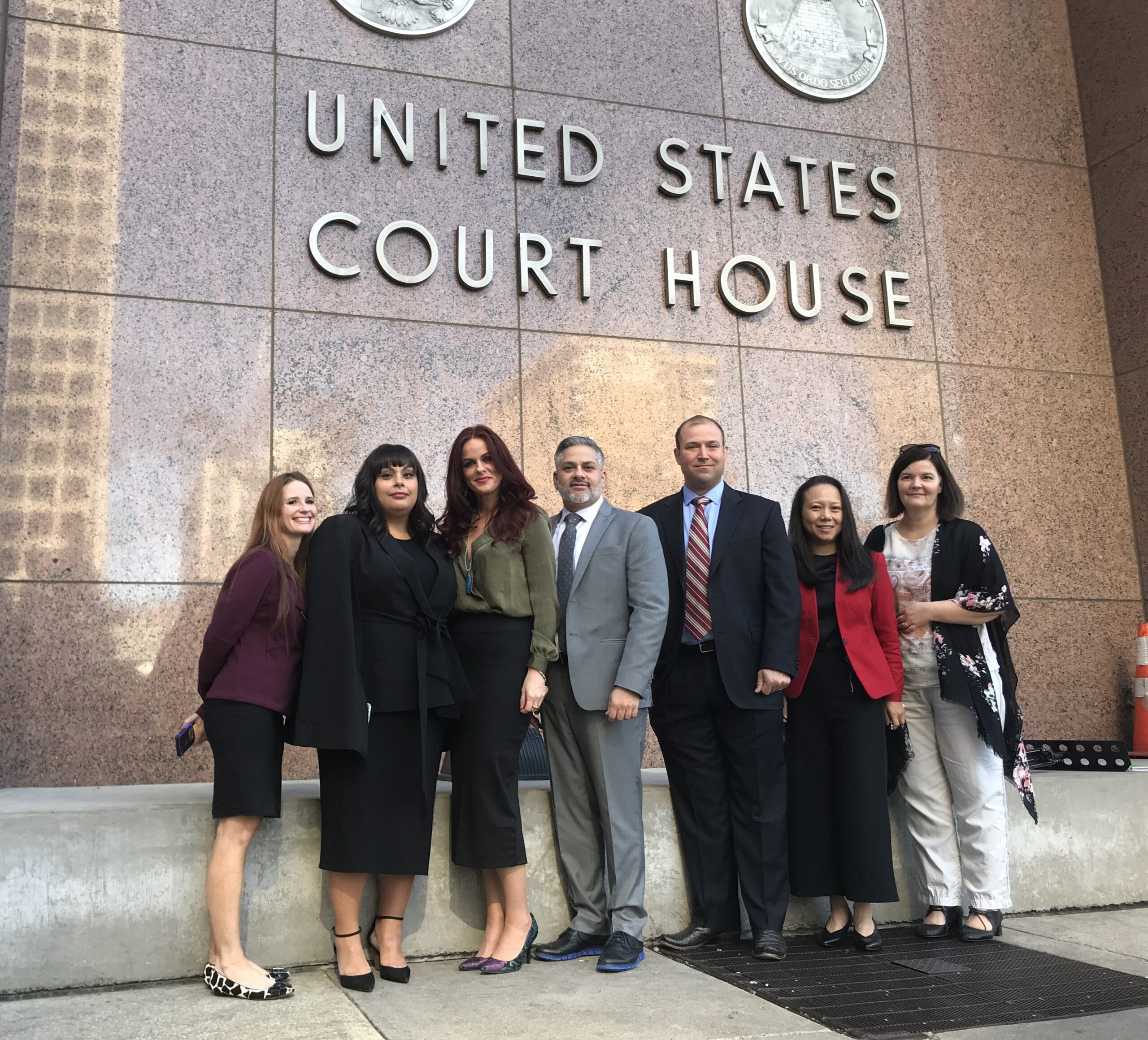One day in May 2023, stunt performer Devyn LaBella showed up to the Utah set of Horizon: An American Saga – Chapter 2, the second part of the sprawling Western series from Kevin Costner, expecting to double for one of the film’s stars in some basic, fairly boring shots. Instead, she says, she was surprised by being subjected to an unscripted, brutal rape scene without proper notice, consent or the presence of a contractually mandated intimacy coordinator.
Now, LaBella is suing Costner and the film’s production companies for sexual discrimination, harassment and the creation of a hostile work environment. Moreover, the complaint alleges LaBella faced retaliation after she reported the incident by not being called back for subsequent work on the Horizon series and never being hired again by the film’s stunt coordinator, with whom she had worked previously.
“On that day, I was left exposed, unprotected, and deeply betrayed by a system that promised safety and professionalism,” LaBella said in a statement to The Hollywood Reporter. “What happened to me shattered my trust and forever changed how I move through this industry.”
In a statement, Costner’s attorney Marty Singer said his client “always wants to make sure that everyone is comfortable working on his films and takes safety on set very seriously.” He says, however, that the lawsuit has “absolutely no merit” and is “completely contradicted by [LaBella’s] own actions — and the facts.”
The suit represents the latest legal battle for Horizon, as Costner’s loan-out firm for the series was recently hit with an arbitration claim for allegedly breaching its co-financing agreement with New Line Cinema. This complaint was filed after settlement discussions with Costner and production company representatives broke down, says James Vagnini of Valli Kane & Vagnini, one of the attorneys representing LaBella, with support from the Time’s Up Legal Defense Fund.
The Horizon series is the product of decades of hustle from Costner, a veteran of the Western epic, from Dances With Wolves to Hatfields & McCoys to Yellowstone. With no major studio willing to fork over the cash he felt was needed, Costner invested $38 million of his own funds, with the series’ first film premiering to anemic box office in June 2024.
An ascendant stunt performer who had worked on Barbie and American Horror Stories, LaBella was hired on Horizon’s second installment as the lead stunt double for actress Ella Hunt, who plays one of the film’s main characters. Hunt’s role did involve sexual violence. As part of her contract, the lawsuit maintains, Hunt negotiated a mandatory intimacy coordinator on all nude or intimate scenes, which, as her stunt double, would apply to LaBella as well. Moreover, given that Hunt and LaBella are members of the performers union SAG-AFTRA, their intimate scenes would also be subject to the labor group’s regulations, which call for prior notice, consent and a closed set.
Everything went by the book for a scripted rape scene that shot on May 1, according to the suit: The scene — where LaBella performed the more physical, rough aspects of the action — was detailed on the day’s call sheet, rehearsed with a stunt coordinator and an intimacy coordinator, later monitored by that intimacy coordinator, took place on a closed set and was structured such that performers got breaks in between shots.
But rules were allegedly thrown out the window the next day, when LaBella showed up on set to double for two non-intimate sequences and was asked by Costner to stand in for Hunt for a shot. Unbeknownst to LaBella, the complaint claims, Hunt had just walked off of the set, “visibly upset,” after Costner told her he had just added an impromptu scene of sexual violence perpetuated by a different character than the previous day’s scene.
LaBella, instructed to lay down on a wagon, allegedly only found out that this was a rape scene after Costner called for actor Roger Ivens to simulate nonconsensual sex on top of her: “Mr. Ivens violently rustled Ms. LaBella’s skirt up as if trying to penetrate her against her will” while pinning her down per the director’s orders, the complaint states. No notice had been given, the scene had not been rehearsed, no intimacy coordinator was on set and all of the action was aired on monitors that could be viewed by the entire crew, according to the suit.
Costner’s attorney Singer maintains that this was a rehearsal without cameras rolling and not a filmed scene itself. The film’s stunt coordinators were present, he added. After this rehearsal, LaBella “gave her Stunt Coordinator supervisor a ‘thumbs up’ and indicated her willingness to then shoot the scene, if needed,” he states; the scene ended up being shot with a stand-in performer and not LaBella.
The lawsuit emphasizes that Costner did not consistently call “action” or “cut” during this process, leaving LaBella without time to fully comprehend what was happening as the action repeated. Meanwhile, “Mr. Ivens never separated from Ms. LaBella,” the suit says, consistently keeping his hand on her body. Moreover, the complaint claims the wardrobe department had not prepared LaBella for her undergarments to be exposed, as they were by the directions Costner was giving Ivens.
The complaint describes LaBella as shaken and “terrified” following this experience. Afterward, she raised concerns and made complaints to several stunt coordinators and to the film’s intimacy coordinator, later feeling that many in the production team were treating her with kid gloves, the suit states. She received some apologies from colleagues on the film, but was directed to stay in her trailer, fully costumed and not used on set for several days, the complaint claims.
Singer disputes that LaBella made a complaint to the film’s stunt coordinators, saying “she was in good spirits and made no complaints to them” at a dinner the night after the scene. He says that LaBella took stunt coordinator Wade Allen to a thank-you dinner following the production, and sent him a text stating, “Thank you for these wonderful weeks!”
Ultimately, LaBella was not called back for the third film in the series, and Allen did not hire her again, though he had hired her for projects before Horizon.
The lawsuit alleges that LaBella’s career came to an “abrupt halt” after the incident. Not only was Allen not hiring her again, but “the workplace, and stunt work in general, which was once a source of purpose and fulfillment, is now a place of heightened apprehension and the whole experience has left Ms. LaBella feeling ‘disposable’ and ‘worthless,’” the complaint states.
If the case goes to trial, LaBella and her attorneys are asking the jury to determine any potential punitive damages. Beyond compensation, the point of the suit is also to “address the continued failures at the highest levels of Hollywood production companies to comprehend and address the impacts of performing in sexually explicit and violent ‘scenes’ and the need for intimacy coordination,” the complaint reads.
The use of intimacy coordinators in Hollywood exploded after the #MeToo movement prompted a reappraisal of power dynamics on set. Choreographing scenes of an intimate nature, intimacy coordinators are intended to be watchdogs for performer safety and comfort. While some famous performers have embraced them (Rachel Zegler, Phoebe Dynevor), others have waved them off or said they didn’t feel they need them, like Mikey Madison and Sean Bean.
Per the lawsuit, in this case an intimacy coordinator was mandated by a performer contract, amplifying existing union protections. Says Jennifer Mondino, the senior director of the Time’s Up Legal Defense Fund, which supported the case, “The guidelines that are supposed to be followed on regular movie sets weren’t being followed.”
Adds LaBella’s lawyer Vagnini, “If it can happen on a size of a production worth $100 million or more, imagine what happens on smaller ones where you’re really trying to cut corners.”
As for Singer, he says, “The facts are clear and we are beyond confident that Kevin will prevail.”






